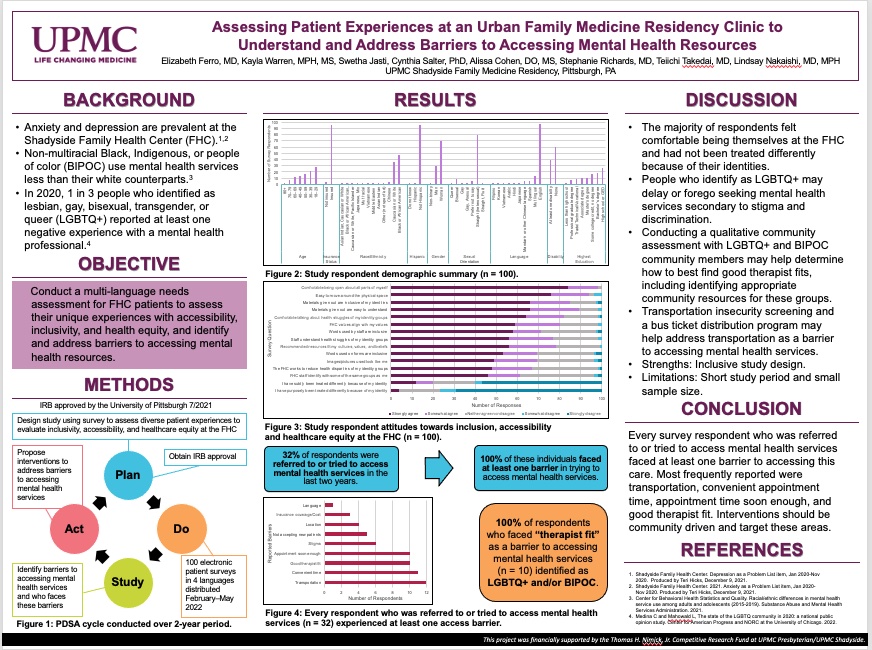Addiction Medicine Fellow, University of Pennsylvania, Philadelphia, Pennsylvania
Assessing Patient Experiences at an Urban Family Medicine Residency Clinic to Understand and Address Barriers to Accessing Mental Health Resources
Authors:
Elizabeth Ferro, MD; Kayla Warren, MPH, MS; Swetha Jasti, BA, BS; Cynthia Salter, PhD; Alissa Cohen, DO, MS; Stephanie Richards, MD; Teiichi Takedai, MD; Lindsay Nakaishi, MD, MPH
Background:
Anxiety and depression are prevalent both in the United States and at the Shadyside Family Health Center (FHC). There are inequities in access to mental health services in the United States. For example, non-multiracial people who identify as Black, Indigenous, or people of color (BIPOC) use mental health services less than their white Counterparts. Additionally, 1 in 3 people who identify as lesbian, gay, bisexual, transgender, or queer (LGBTQ+) recently reported at least one negative experience with a mental health professional in the last year.
Methods:
A multi-language needs assessment for FHC patients was deployed using an electronic survey to assess their unique experiences with accessibility, inclusivity, and health equity at the FHC, and to identify and address barriers to accessing mental health services.
Results:
Thirty-two of the 100 survey respondents were referred to or had tried to access outpatient mental health services in the last 2 years. Each of these individuals faced at least one barrier to accessing such services; most commonly, transportation (n = 12), finding a convenient appointment time (n = 11), an appointment time soon enough (n = 10), and therapist fit (n = 10). Every respondent who identified “therapist fit” as a barrier identified as LGBTQ+ and/or BIPOC.
Conclusion:
Thirty-two percent of patients at the FHC who responded to a needs assessment survey was referred to or tried to access mental health services, and every respondent faced at least one barrier, most commonly, transportation, convenient appointment time, appointment time soon enough, and therapist fit. Interventions should target these areas and be community-driven.

